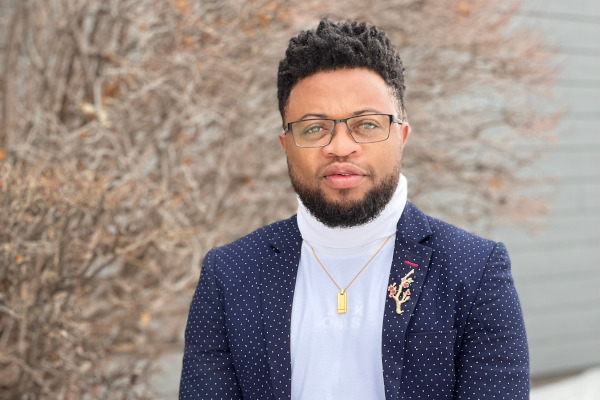
Leke Ivo Jingwa
My name is Leke Ivo Jingwa and I am originally from Cameroon. I am currently a Ph.D. candidate in Educational Administration. I moved to Canada in 2017 to pursue a Master's program in Educational Administration. Prior to moving to Canada, I completed a Bachelors’s degree in Sociology and Anthropology from the University of Buea, Cameroon, and a postgraduate degree in Development Studies from the University College Leuven Limburg in Belgium.
Personal Experiences at USASK
I am very passionate about research. Over the past couple of years, I have collaborated very closely with seasoned researchers to study the African economic and development policies. All in all, I have published four peer-reviewed articles in this area. On moving to Canada, my focus shifted towards exploring different facets of school leadership and especially positive leadership driven by teachers. My Master’s research on positive teacher leadership was supervised by Prof. Keith Walker and I continue to enjoy his support on my Ph.D. research. Under his leadership, direction, and guidance, I have gained extensive knowledge and practical experience. We have also been involved in a couple of projects, with the most recent being the publication of a book chapter titled Concept and Practice of Positive Teacher Leadership. This chapter offers an optimistic perspective on school leadership and sheds light on everyday teachers who may be at the forefront of positive change and development in schools, but remain less visible and not necessairily considered in the scope of the discussion about school leadership.
In addition to my ongoing Ph.D. program, I am a Graduate Teaching Assistant in the Department of Educational Foundations. This experience is very valuable to me and represents one of the pillars of my development. I have had the honor of receiving several awards and scholarships, including the Lownsbrough Memorial Scholarship in Education, the Dr. Murray Scharf Award for the National Congress on Rural Education, the Department of Educational Administration Devolved Scholarship, and the Dr. Patrick Renihan SELU award.
I currently sit on the planning committee for the 27th National Congress on Rural Education, organized by the Saskatchewan Educational Leadership Unit. I am excited to share that this year's congress focuses on global perspectives on rural and remote education and sustainability research.
USask holds a special place in my heart. The university’s vision of contributing to a sustainable future through knowledge and research, including the promotion of diversity and inclusion, address the needs of this region and the world and is aligned with my personal philosophy. I am grateful to USask for the opportunity to be part of this vision.
My travels
One thing I am particularly proud of, is the experience and memories I've gathered from different parts of the world. In the course of my studies, I was fortunate to have the opportunity to travel and visit many countries, including Belgium, France, the Netherlands, Germany, Hungary, Finland, Italy, and Morocco. Travelling has undoubtedly impacted and enriched my life and has facilitated my ability to meet different people and learn about different cultures. My intercultural experiences have also helped me build strong relationships and connect with many people here in Saskatoon.
What Black History Month means to me
I see Black History Month as a period to celebrate the successes and contributions of Black people worldwide, and a time to engage our communities in reflecting on the challenges faced by people of color and other minorities.
I appreciate the support of USask in championing and promoting diversity and inclusion at all levels. USask leadership has made significant efforts to highlight and address some of the challenges of the Black community, but more needs to be done, especially in the area of Black representation.
As we celebrate Black History Month this year, it is important to reflect on ways to promote Black and minority representation, empower minority communities and advance intercultural relations. This is also an opportunity to highlight wellness and well-being issues that affect Saskatoon in general, and the Black and visible minority communities in particular.

